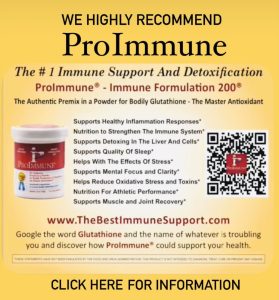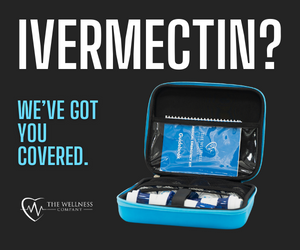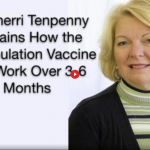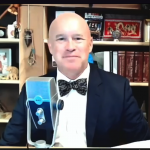Cancer will afflict 1 in 2 men and 1 in 3 women in the US and 1 out of every 2 of those diagnosed will die from cancer. These numbers are set to nearly double by the year 2050, based on statistics collected by the National Cancer Institute (NCI).
It’s no exaggeration to call these numbers epidemic, on par with the 14th century bubonic plague (aka “Black Death”), which killed over 30% of Europe’s population.
My family has been ravaged by cancer. I’ll bet yours has been, too. Are we supposed to believe that this hyper-acceleration in cancer rates is genetic?
With all of Monsanto’s biochemical wizardry, one would think that they could find another way to create pesticides besides dumping estrogen-mimicking carcinogens onto the world’s food supply.
In this video, Dr. Terry Grossman and Dr. Nick Delgado, discuss the relationship between cancer and these unnatural estrogens in our environment.
Decades of peer-reviewed research has shown that harmful estrogen-mimicking chemicals are invading our bodies through pesticides, plastics (PCBs) and petrochemicals, among other vectors. Exposure to these “xenoestrogens” has been linked not just to cancers of reproductive organs but also of the breast, lung, kidney, pancreas, and brain.
Additionally, new research shows that all meats, even from animals raised without added hormones, free-range, organic, etc. are naturally very hormonal, such that today, most of us have accumulated up to 10,000 times as much estrogen in our bodies as our ancestors ever did.
Excessive build-up of xenoestrogens can lead to gynecomastia in men (“man boobs”), as well as excessive accumulation of DHT (Dihydrotestosterone), a metabolite of testosterone, which binds to receptors in hair follicles and is the primary factor in male pattern baldness (which similarly affects some women). A little-known factoid is that men in their 60s and over often have higher estrogen levels than women of the same age group.
Exposure to these estrogen-mimicking envirotoxins can manifest as symptoms relating to both high and low estrogen. In women, excessive estrogen can lead to weight gain, migraines, depression, insomnia and a slew of other symptoms of hormone imbalance. Low estrogen in women can result in elevated blood pressure, heart disease and lack of libido, along with many other problems.
What can we do about this?
Dr. Grossman and Dr. Delgado agree that detoxification through sweat and our other excretions is important – as is the avoidance of ingesting of these chemicals in the first place. This implies limiting or entirely cutting out our consumption of water in plastic bottles, meats, and other foods that can become laced with PBCs, especially when heated in plastic containers in a microwave oven.
Even with a strict vegan diet, the ubiquity of pesticides and other petrochemicals, which we are also inhaling from the air makes it impossible to avoid xenoestrogens completely.
Dr. Grossman recommends a diet rich in cruciferous vegetables from the Brassica family, such as cabbage, Brussels sprouts, kale, collard greens, mustard greens, cauliflower, water cress, arugala, bok choy and broccoli, among others. These contain compounds which have been found to inhibit the development of cancer and its recurrence.
The best results from eating cruciferous vegetables require consuming 2 pounds (1 kilo) per day, which would be a challenge for anyone, so he also recommends the use of supplements containing the two key natural compounds found in this family of vegetables, DIM (Diindolylmethane) and Indole-3-carbinol, which alter the toxic forms of estrogen into their less toxic and beneficial forms.
To learn more:












I believe the CO2 issue was made preeminent in order to keep us concerned citizens eyes off the real issue which is chemical saturation of the entire global environment. Buried deep in this article:
http://www.nytimes.com/2016/01/10/magazine/the-lawyer-who-became-duponts-worst-nightmare.html?hp&action=click&pgtype=Homepage&clickSource=story-heading&module=photo-spot-region®ion=top-news&WT.nav=top-news&_r=2#story-continues-1 Is this comment, discovered by an attorney in a 25 year legal quest to bring DuPont to bear: “We see a situation,’’ Joe Kiger says, ‘‘that has gone from Washington Works, to statewide, to the United States, and now it’s everywhere, it’s global. We’ve taken the cap off something here. But it’s just not DuPont. Good God. There are 60,000 unregulated chemicals out there right now. We have no idea what we’re taking.’’
100% I also find it ironic that the chemicals often intentionally resemble estrogens that are known to cause cancer. Why can they dump this stuff in our food again? Anyone?